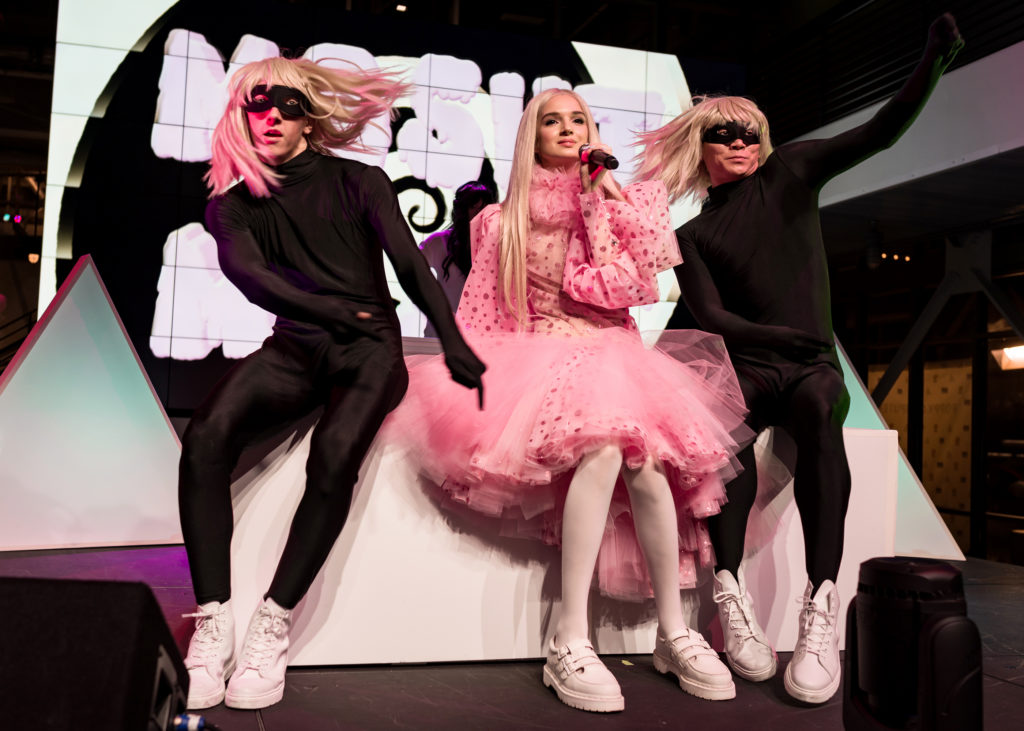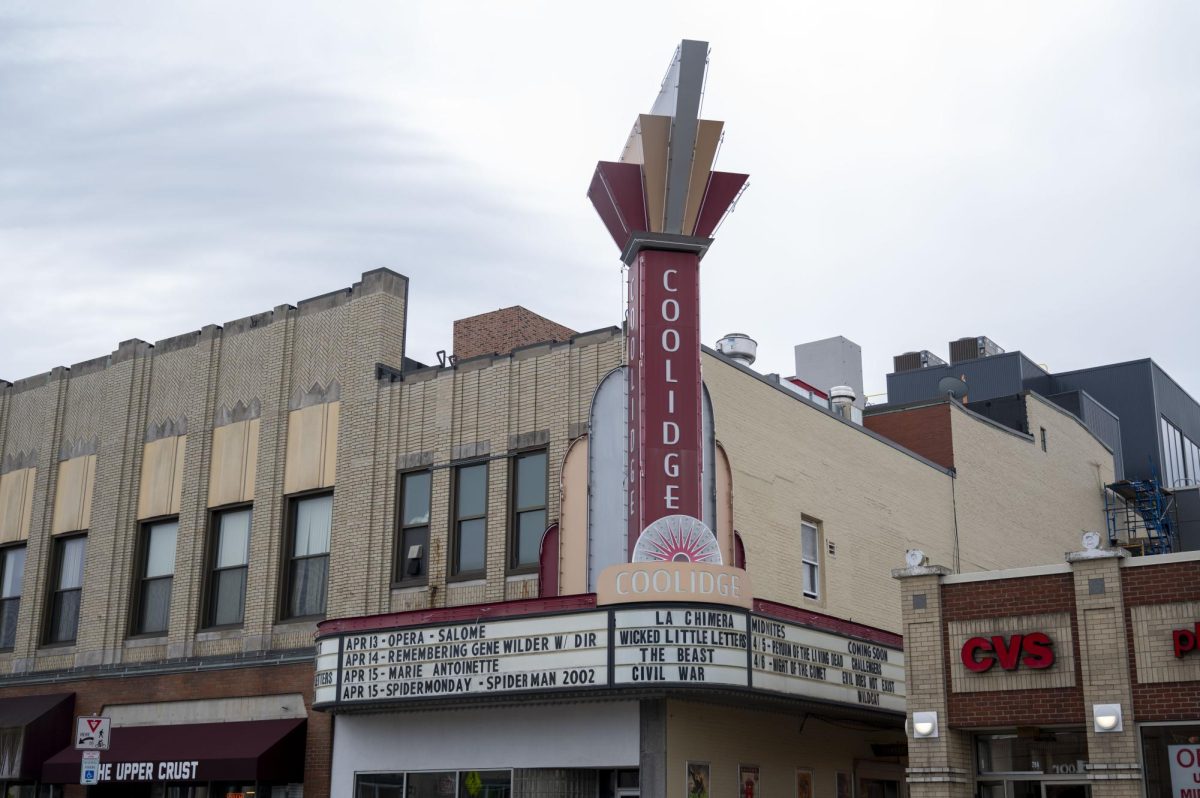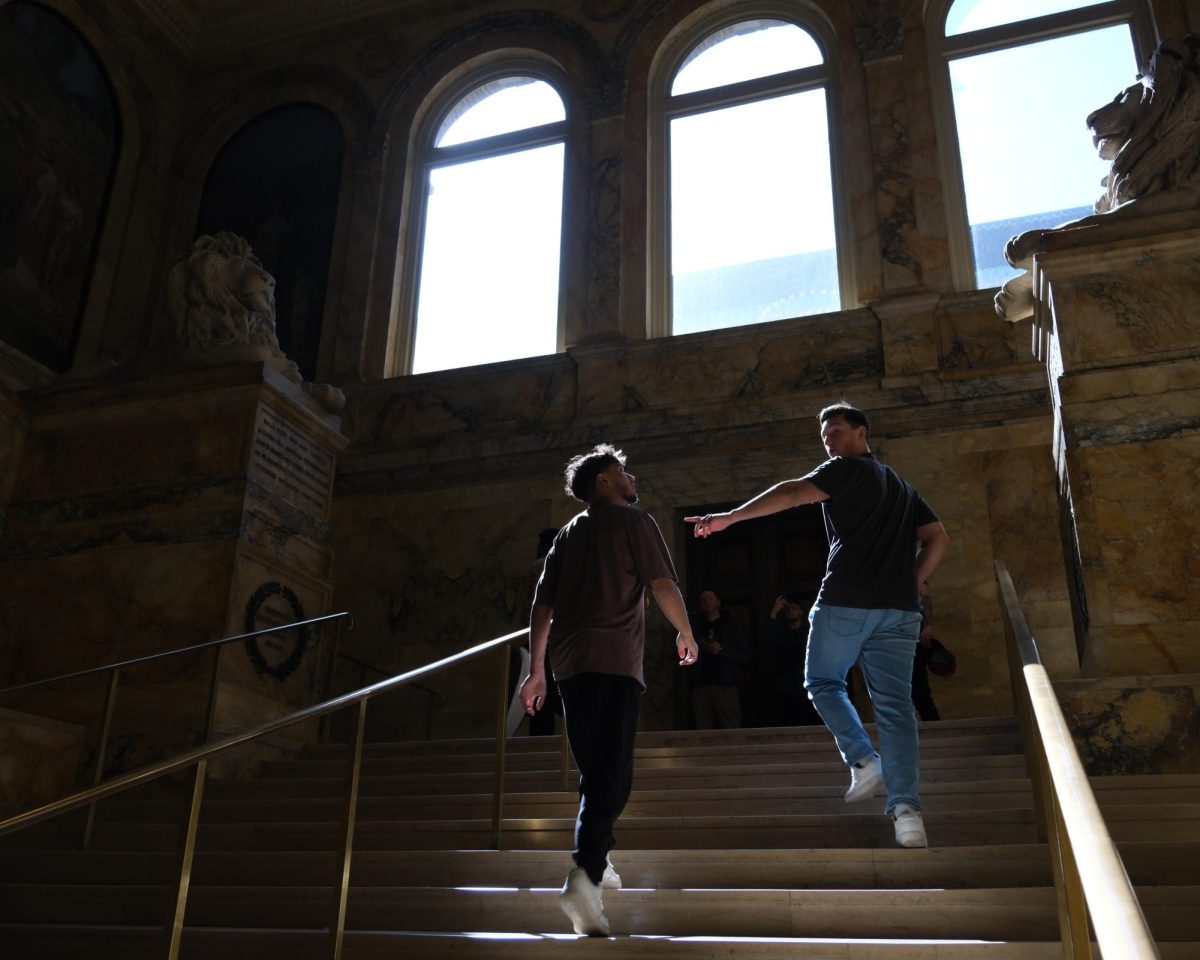By Mohit Puvvala, lifestyle columnist
From the moment the concert started, something was off. I’ve spent the last few days speculating on what Poppy, an internet celebrity who performed last week in AfterHours, is trying to accomplish with her bizarre videos.
Ever since her rise to fame with her viral video titled “I’m Poppy,” I’ve been intrigued by her successful YouTube channel. On the surface, her channel may seem like a series of colorful, stylized shorts that blend well with modern popular culture. But Poppy has shown the world that her content is a lot more than just a mere collection of seemingly unrelated videos. The eerie tension that stretches through all of her videos points to something much more meaningful.
Many fans believe that through her videos, Poppy is actually telling the story of what it now means to become a popstar in corporate America. Before the concert I somewhat believed the theories, but I was completely sold after I saw her performance.
The show began with a large screen warning the concert would feature many flashing lights. After a few technical issues, the concert began. I could be wrong, but I’m pretty sure the masked man with long hair working the audio was Titanic Sinclair, the director and mastermind behind Poppy’s videos. Everything seemed great in the beginning. Poppy went onstage with two background dancers, who astonished the audience with fast breakdancing, and sang her opening, appropriately titled “I’m Poppy.” For the first few songs, Poppy seemed like a typical pop star with an unusually flashy outfit equipped with giant shoulder spikes. The glitchy, computerized tones in her music blended well with the performance’s digital aesthetic.
However, as the concert progressed, it was clear Poppy was telling a bigger story. There was something far more sinister at hand. The computer imagery soon turned into unsettling hazard signs and skulls, and Poppy began to play some of her viral videos in a sequence that I and many other theorists believe showed the moral of her channel.
There was a certain scene in a video where a duplicate of Poppy shows up next to her. Then, the original Poppy in the video starts to bleed from her mouth. The scene was displayed full-screen at AfterHours, and the audience gasped. It was unsettling and seemingly stemmed from nowhere.
However, upon further thought, it was revealed that Poppy is more than a regular popstar. She represents what it means to be a popstar in the digital age and how so many pop star figures these days sell their souls to corporate overlords because of contractual obligations such as paid advertising, thus becoming more of an object than a person. Society tends to view celebrities as distinct from normal people, so we begin to see Poppy as a representation instead of an actual person. In the series, the fictional unnamed entity that controls Poppy is attempting to create a symbol to generate revenue. Unfortunately, that means the individual singer herself loses her meaning and passion for music. While the actual actress herself, Moriah Pereira, doesn’t represent these values, the character does, and director Titanic Sinclair is attempting something bold with his show’s puzzling narrative.
In both her series and the AfterHours performance, Poppy talked about how she loved being famous on the YouTube platform as if to say the website is the way to become a success on the internet. As Poppy started the concert, we saw that she was eager to sing and put her name out there (hence “I’m Poppy”), but as it went on, the songs became darker. She performed “Interweb,” a song which signifies that Poppy has the control of her audience. Finally her bleeding mouth video aired, and the performance started to go a little haywire. She read the Gettysburg address and sections of Northeastern’s Wikipedia page. People in the audience began to scratch their heads and wonder what is going on. Poppy was losing her sanity onstage. It became clear that the star could not go on with the act and she left the stage.
At that point, I realized when Poppy bled from her mouth in the video, she was losing herself to a new, more ideal version of her in the eyes of her corporate overlords. Suddenly, before the final song, Poppy came back and was seemingly back to how she was in the beginning, ready to make happy music. Given the supposed meaning behind her channel, this could signify that she has been replaced by a new version of herself.
It’s all incredibly interesting, and even if I missed the point, I was engaged in her performance even after it ended. I think this is why Poppy is such a phenomenon. Why does she act the way she acts? Why is she so elusive online? There’s a bigger story hidden behind the random videos and the catchy songs. I and many others believe that Poppy signifies modern popstars and how they can sometimes be manipulated by corporations to control audiences for their ulterior capitalistic motives. For these reasons, I would argue that Poppy’s performance at AfterHours, brought together by Northeastern’s Live Music Association, was truly something special.














